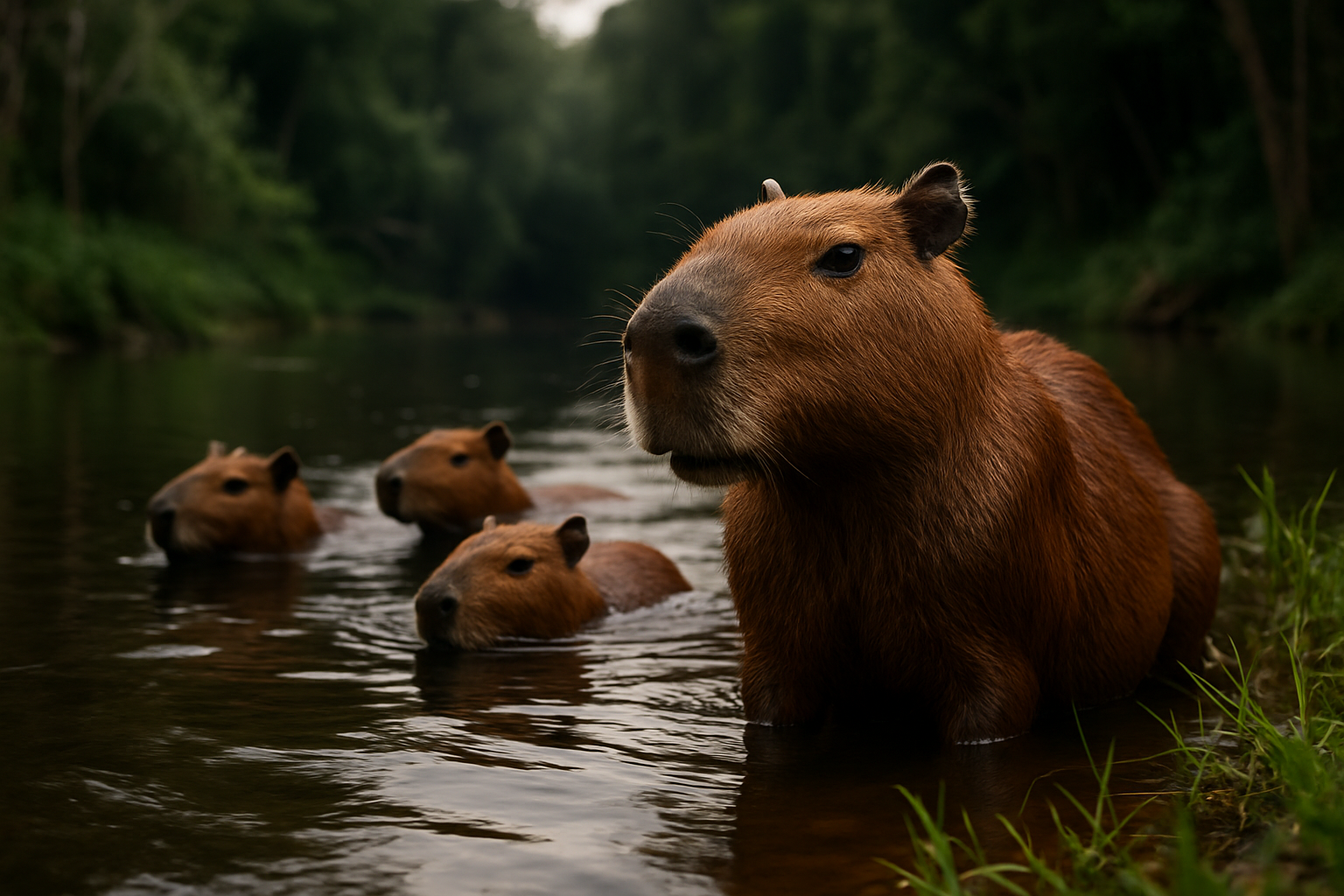The Surprising World of Capybara Companionship
The gentle giants of the rodent world, capybaras, are making waves as unconventional pets. These social, semi-aquatic mammals native to South America are captivating animal lovers with their docile nature and unique characteristics. As interest in exotic pet ownership evolves, capybaras are emerging as an intriguing option for those seeking an extraordinary animal companion. This article delves into the fascinating realm of capybara companionship, exploring their care requirements, legal considerations, and the growing trend of keeping these oversized guinea pig cousins as pets.

The trend of keeping capybaras as pets has slowly spread to other parts of the world, including the United States, Japan, and some European countries. This shift can be attributed to increased awareness of their unique personalities and the desire for more exotic animal companions. However, it’s important to note that capybara ownership remains relatively rare and is subject to strict regulations in many areas.
Legal and Ethical Considerations
Before considering a capybara as a pet, it’s crucial to understand the legal landscape surrounding their ownership. In many countries and regions, keeping capybaras as pets is either heavily regulated or outright prohibited. In the United States, for example, laws vary by state, with some allowing capybara ownership with proper permits, while others ban it entirely.
Potential owners must research local laws and obtain necessary permits before acquiring a capybara. Additionally, ethical considerations come into play when deciding to keep such a social and space-demanding animal as a pet. Capybaras thrive in groups in the wild, and replicating their natural habitat and social structure in captivity can be challenging.
Capybara Care Requirements
Caring for a capybara is a significant undertaking that requires dedication, space, and resources. These animals have specific needs that must be met to ensure their health and well-being:
-
Habitat: Capybaras need a large, secure outdoor enclosure with both land and water areas. A pond or pool is essential for swimming and thermoregulation.
-
Diet: In the wild, capybaras are herbivores that graze on grasses and aquatic plants. As pets, they require a diet rich in fiber, including hay, fresh vegetables, and specially formulated pellets.
-
Social Needs: Capybaras are highly social animals and ideally should be kept in pairs or small groups. Solitary capybaras may develop behavioral issues.
-
Health Care: Regular veterinary check-ups are crucial, as capybaras can be prone to dental problems and parasitic infections. Finding a veterinarian experienced with exotic pets is essential.
-
Environmental Enrichment: These intelligent animals need mental stimulation through toys, activities, and varied environments to prevent boredom and stress.
The Capybara Personality
One of the main draws of capybaras as pets is their unique personality. Often described as gentle and affectionate, capybaras can form strong bonds with their human caregivers. They are known for their calm demeanor and tolerance of other animals, often seen peacefully coexisting with various species in both wild and captive settings.
Capybaras are also highly intelligent and can be trained to respond to basic commands and even use litter boxes. Their social nature makes them engaging companions, but it also means they require significant attention and interaction from their owners.
Challenges of Capybara Ownership
While capybaras can make fascinating pets for the right owner, they come with several challenges:
-
Space Requirements: The need for a large, secure outdoor enclosure with a water feature can be prohibitive for many potential owners.
-
Legal Hurdles: Navigating the complex and often restrictive laws surrounding capybara ownership can be difficult and costly.
-
Specialized Care: Finding veterinarians and resources for proper capybara care can be challenging in areas where they are uncommon pets.
-
Social Needs: Meeting the social requirements of these highly gregarious animals can be demanding for owners.
-
Lifespan: Capybaras can live up to 10-12 years in captivity, representing a long-term commitment.
The Growing Trend and Its Impact
The increasing interest in capybaras as pets has led to a niche market for breeders and specialized pet supplies. While exact numbers are difficult to determine due to varying regulations, anecdotal evidence suggests a growing community of capybara enthusiasts.
This trend has both positive and negative implications. On one hand, it has raised awareness about these unique animals and their conservation needs. On the other, concerns about the welfare of captive capybaras and the potential for irresponsible ownership have been raised by animal welfare organizations.
A Unique but Demanding Pet
Capybaras undoubtedly offer a unique pet experience for those prepared to meet their complex needs. Their gentle nature, intelligence, and social behavior make them captivating companions. However, the significant space requirements, specialized care needs, and legal considerations make capybara ownership a serious commitment not suitable for everyone.
As interest in these charming rodents continues to grow, it’s crucial for potential owners to thoroughly research and consider all aspects of capybara care. While they may not be the right pet for most, the increasing fascination with capybaras is helping to shed light on these remarkable animals and their importance in their native ecosystems.






